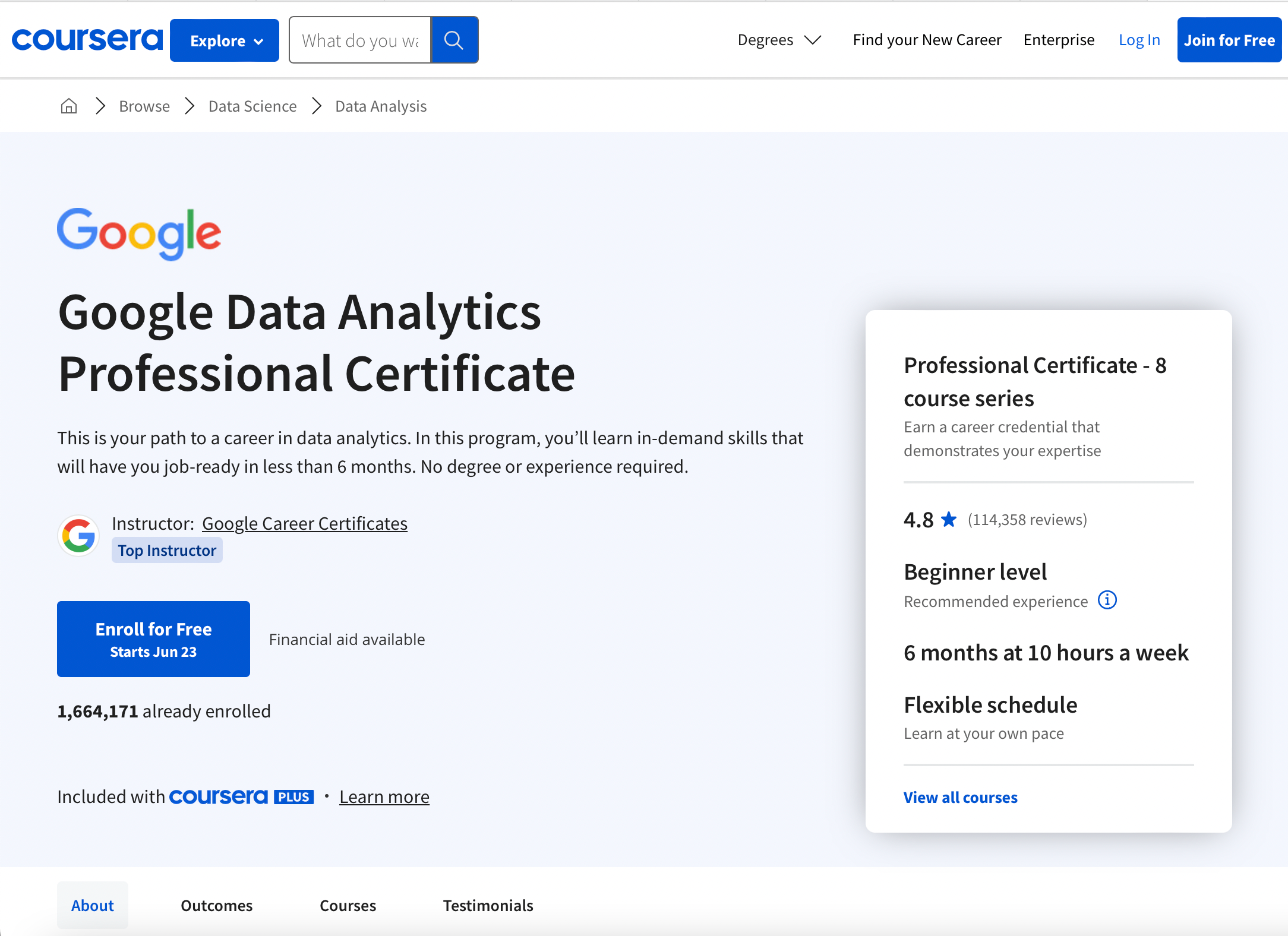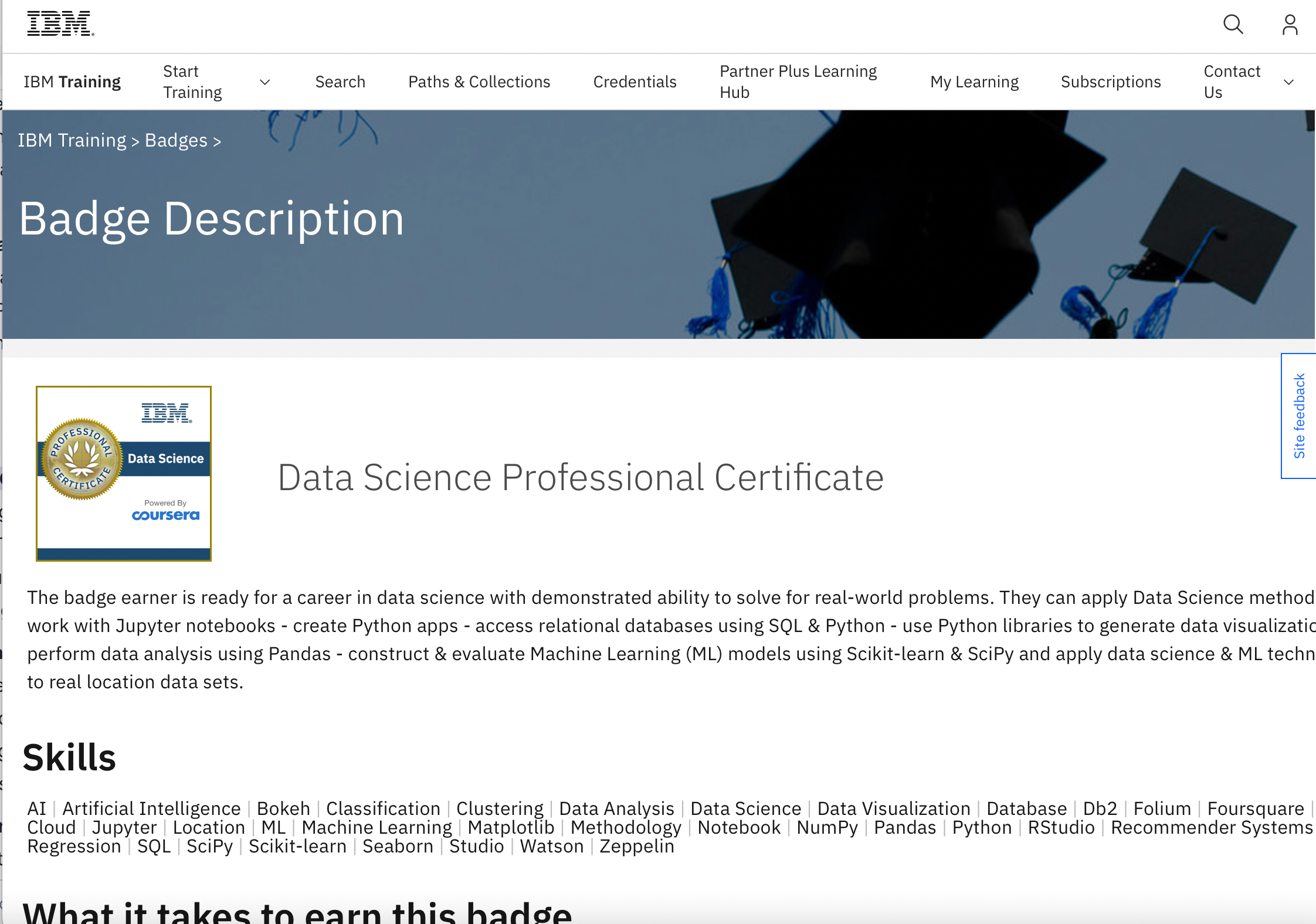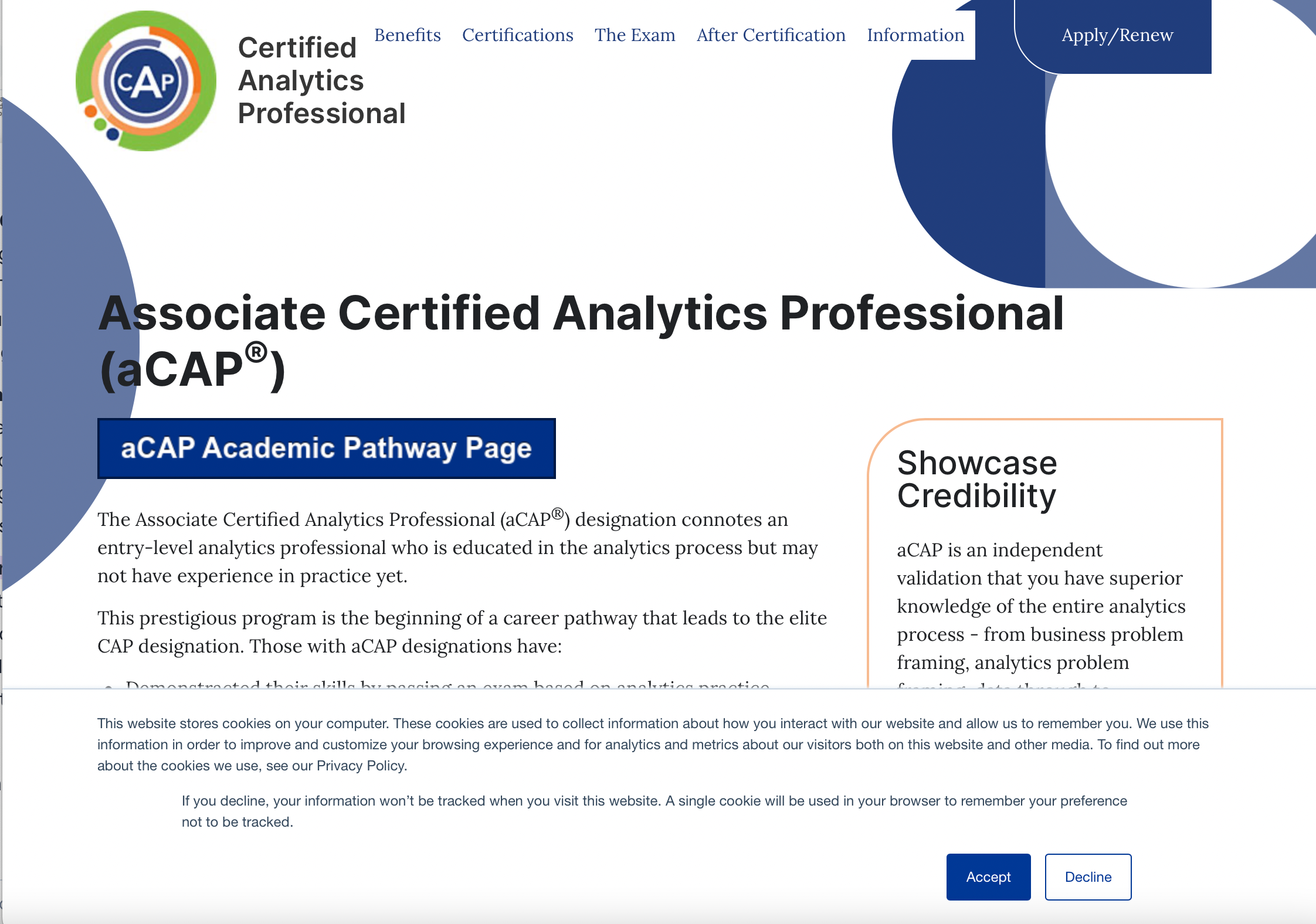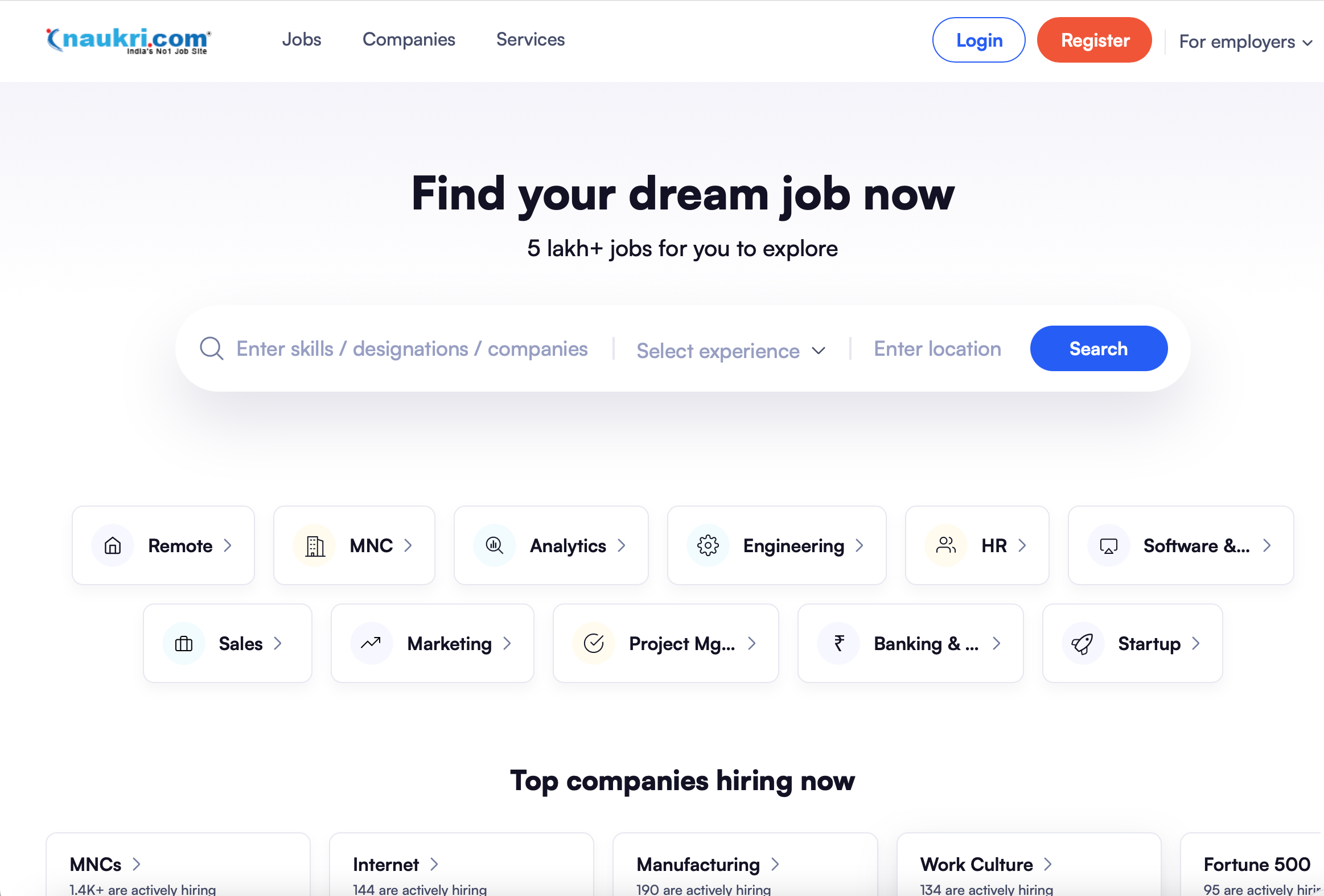Are you captivated by the world of data and its immense power to transform businesses? Do you have a knack for unraveling complex patterns and extracting valuable insights?
If you answered yes, then you’re in for an exciting ride! Welcome to the ultimate guide that will unlock the doors to a flourishing career in data analysis.
Data analyst jobs involve collecting, processing, and performing statistical analyses on large data sets. Analysts design and create data reports using various data systems to help organizations make better business decisions.
Their key responsibilities include interpreting data, analyzing results using statistical techniques, creating ongoing reports, and identifying patterns and trends in complex data sets.

In this comprehensive guide, we’ll explore the diverse landscape of data analytics jobs, dissect the core skills and qualifications that employers seek, delve into the exciting trends shaping the data analyst profession, and give you pathways to secure and advance your career.
So let’s start at the beginning. What exactly do data analysts do?
What Does a Data Analyst Do?

As a data analyst, you are a modern-day detective of the digital age, and as such, you must complete certain tasks that will enable you to unravel the mysteries hidden within vast amounts of data.
Here are some of the key roles and responsibilities that you’ll be expected to fulfill as a data analyst:
1. Data Collection and Cleaning
- Gather and compile data from various sources, such as databases, spreadsheets, and APIs.
- Scrutinize data for inconsistencies, errors, and outliers to ensure data integrity.
- Cleanse and preprocess data to eliminate redundancies and prepare it for analysis.
2. Data Analysis and Exploration
- Apply statistical techniques to analyze datasets and extract meaningful insights.
- Identify trends, patterns, and correlations within the data to drive informed decision-making.
- Utilize data visualization tools to create compelling visual representations of data.

3. Reporting and Presentation
- Create comprehensive reports and dashboards that communicate key findings and recommendations.
- Present complex data in a clear and concise manner, catering to both technical and non-technical stakeholders.
- Collaborate with cross-functional teams to ensure data-driven insights are effectively utilized.
4. Predictive Modeling and Forecasting
- Develop predictive models using statistical methods and machine learning algorithms.
- Forecast future trends and outcomes based on historical data patterns.
- Evaluate model performance and iterate to improve accuracy and reliability.

5. Data Governance and Ethics
- Ensure compliance with data privacy regulations and ethical guidelines.
- Establish data governance frameworks to maintain data quality, security, and accessibility.
- Implement measures to protect sensitive information and prevent data breaches.
6. Continuous Learning and Improvement
- Stay updated with the latest industry trends, tools, and techniques in data analysis.
- Enhance technical skills in programming languages (e.g., Python, R, SQL) and data manipulation tools.
- Seek opportunities for professional development, such as attending conferences or pursuing certifications.
As a data analyst, you’re essentially the bridge between raw data and the actionable insights that drive strategic decision-making and shape business outcomes. So it is understandable that a lot is expected of you as it pertains to your roles and responsibilities.
But beyond the roles and responsibilities expected of you, employers are also very interested in your qualifications, so let’s go over some of those qualifications in the next section.
The Data Analyst Qualifications Employers Expect

Data analysis is a technical job, so it’s no surprise that employers want to see hard evidence that you are qualified for the job. A strong and relevant educational background and a robust job-specific skill set are necessary if you want to make yourself irresistible to potential employers.
In the next two sections, we’ll go over the education requirements as well as the technical and soft skills you need to have to succeed in a data analyst position.
Education Requirements for Data Analysts
When it comes to landing a data analyst job, having the right education is essential.
Although some individuals might be able to break into the field without a college degree, most data analysts hold at least a bachelor’s degree in a related field such as mathematics, statistics, computer science, or economics.
Obtaining a master’s degree can make you an even more competitive candidate in the job market.

For those looking to build job-ready data analyst skills without spending the time or money on a degree, consider pursuing a professional certificate. Here are some of the most useful and popular data analyst certifications that you should consider:

- Google Data Analytics Professional Certificate: This program teaches you how to clean and organize data with SQL and R, visualize data using Tableau, and complete a case study for your portfolio — no prior experience or degree is required.
- Microsoft Data Analyst Associate Certification: This certification focuses on using tools within the Microsoft ecosystem, such as Power BI, Excel, and Azure. By becoming a Microsoft Data Analyst Associate, you prove your skills in data visualization, key performance indicator (KPI) analysis, and deriving insights from large datasets.
- Cloudera Certified Associate Data Analyst: Cloudera offers this certification to individuals who can analyze, transform, and model data using Cloudera’s data platform. Possessing this certification showcases our skills in using various data analytics tools and running SQL queries in the Cloudera environment.

- IBM Data Science Professional Certificate: With this certification, you acquire comprehensive knowledge of data science, machine learning, and data analysis using Python. This certificate, awarded by IBM, is widely recognized and helps you demonstrate your ability to analyze data and deploy machine learning models.
- Amazon AWS Certified Big Data: As an AWS-certified data analyst, you’ll showcase your ability to design, deploy, and maintain big data applications using the AWS platform. This certification is suitable for those who have experience using AWS tools for data analysis and want to leverage big data technologies.
- Associate Certified Analytics Professional (aCAP): Aimed at entry-level professionals, this certification demonstrates foundational knowledge in analytics, even if you don’t have relevant experience. With an aCAP, you can show potential employers that you understand the analytics process and are ready to contribute to the field of data analysis.

A data analysis-related degree in combination with one of these certifications, will undeniably give you a much-needed competitive edge in the job market.
Also bound to give you a leg up in this increasingly competitive market is a robust skill set.
Essential Skills for Data Analysts
In the field of data analytics, a diverse set of skills is necessary to excel in the job. These skills can be divided into two main categories: technical skills and soft skills.
1. Technical Skills

To thrive in a data analyst role, you need to be equipped with a strong foundation of technical skills, some of which include:
- Proficiency in programming languages such as R, Python, SAS, and SQL. These languages are essential when working with data, as they allow for data extraction, manipulation, and analysis.
- Data visualization using tools like Tableau, Power BI, and Python libraries such as Matplotlib or Seaborn. The ability to present complex data in an easily understandable format is crucial. Take a look at how Power BI is being used for data visualization with ChatGPT, its wild!
- Statistical knowledge and mathematical aptitude to understand data patterns, identify trends, and make data-backed decisions. This includes knowledge of descriptive and inferential statistics, as well as probability theory.
- Data cleaning and preparation techniques to ensure that data is accurate and of high quality before analysis. Data analysts must have experience working with data from multiple sources and in various formats.
- Machine Learning algorithm and techniques knowledge for tasks like classification, regression, clustering, and recommendation systems, utilizing Excel’s data analysis tools and add-ins.
2. Soft Skills

While technical skills are fundamental for a data analyst, having strong soft skills helps you collaborate with others, make crucial decisions, and problem-solve effectively. Some essential soft skills for data analysts include:
- Critical thinking and analytical skills to interpret data, identify patterns, and make data-driven decisions. This requires a problem-solving mindset and the ability to ask the right questions.
- Communication skills to clearly explain your findings, insights, and recommendations to both technical and non-technical stakeholders. This includes written and verbal communication, as well as the ability to present data visually.
- Attention to detail ensures that you can identify errors and inconsistencies in data, which is crucial for maintaining data integrity and accuracy.
- Project management skills are essential for staying on track with deadlines and prioritizing tasks. This involves managing your own workload and collaborating with team members to keep projects moving forward.

A successful data analyst must be confident, knowledgeable, neutral, and clear in their approach. You should possess a mix of technical and soft skills to navigate the complex world of data analytics effectively.
If you find that you have the educational background and skill set to successfully perform the roles and responsibilities of a data analyst, you then need to start thinking about finding data analyst jobs. The next section will help you with that.
Top 10 Websites to Find Data Analyst Jobs

Gone are the days of walking to the front desk of a company to deliver your resume, and gone are the days of going to each company’s website to look at their available jobs. These days, if you want a job, a job-seeker website is the best and most efficient way to find one.
Here are 10 great websites where you can find data analyst jobs:
- Indeed (Indeed.com): A popular job search engine, Indeed has a wide range of data analyst job type listings in different locations and countries.
- Glassdoor (Glassdoor.com): Known for its company reviews, Glassdoor also has an extensive list of data analyst job postings in different departments across the world.
- LinkedIn (linkedin.com): A professional networking platform, LinkedIn features numerous data analyst job openings. Its community and wide network also allows for easy networking with potential employers.

- Amazon Jobs (amazon.jobs): As a leading employer of data analysts, Amazon frequently makes announcements on its own website when a position for a new employee opens up.
- Monster (monster.com): A well-known job search platform, Monster enables users to filter data analyst job listings by location, salary, and more.
- EuroJobs (eurojobs.com): Specifically targeting European job seekers, EuroJobs offers a wide range of data analyst job listings throughout the continent.
- Naukri (naukri.com): If you live in India, Naukri is a leading job portal. Naukri features a vast range of data analyst job openings across the country.

- AIJobs (aijobs.net): Providing a comprehensive platform that specifically caters to the growing demand for AI and data-related positions, AIJobs ensures a focused and relevant job search experience.
- Upwork (upwork.com): If you want to join the data analyst profession as a freelancer, Upwork offers a vast marketplace where businesses and organizations can connect with skilled data analysts from around the world, providing a flexible and diverse range of opportunities.
- Y Combinator (ycombinator.com): Offering a curated platform that connects talented data analysts with innovative startups and tech companies, Y Combinator fosters a dynamic environment for career growth and opportunities. Check out their jobs board and try your luck.

If you need more guidance and direction on where to look for data analyst jobs, it may be useful to learn which industries use data analysts the most, so that’s what we’re going to go over in the next section.
Top 6 Industries Hiring Data Analysts in 2023
Data analysts are useful in almost any industry, but these are the industries where data analysts are particularly in high demand.
1. Healthcare & Pharmaceuticals

In the healthcare industry, data analysts play a crucial role in analyzing patient data, medical records, and healthcare costs. They help healthcare organizations improve patient outcomes, predict disease patterns, and streamline healthcare delivery systems.
Data analysts in this sector typically work with large volumes of electronic health records (EHRs), clinical data, insurance claims data, and other health-related information. Their insights can contribute to the improvement of public health initiatives, personalized medicine, and more efficient medical practices.
2. Technology & Software

The technology industry offers ample opportunities for data analysts. We can find data analyst positions in a variety of tech companies, from startups to large corporations.
Data analysts within technology organizations are tasked with analyzing data concerning user behavior, product performance optimization, and market trends to drive product development, marketing strategies, and business decisions.
They often work with a wide range of data, such as web analytics, app usage, customer feedback, and social media interactions. Their analytical skills are essential in the fast-paced tech world, as they help companies stay competitive and agile in an ever-evolving market.
3. Finance & Banking

In the finance sector, data analysts are employed by banks, investment firms, and insurance companies. They analyze financial data to identify investment opportunities, measure financial risk, and streamline financial operations.
Data analysts in finance may work on tasks such as evaluating stock performance, analyzing credit risk, monitoring market trends, and ensuring compliance with financial regulations. Their expertise in data-driven decision-making is invaluable in the finance industry, where accurate and timely analysis of financial data is critical for success.
4. Retail

The retail industry has embraced data analytics to optimize supply chain management, inventory control, pricing strategies, and customer engagement.
Data analysts working in retail analyze sales data, customer behavior, and market trends to help retailers make informed decisions about product offerings, store layouts, and promotional events.
They can work with structured data, such as point-of-sale transaction data, as well as unstructured data, such as customer reviews and social media posts. Their insights help retailers stay competitive, improve customer satisfaction, and ultimately, increase revenue.
5. Government & Public Sector

Data analysts play a crucial role in the government and public sector by employing statistical techniques, data visualization tools, and predictive modeling to uncover meaningful insights that guide evidence-based decision-making.
Data analysts in the government and public sector work on diverse projects, ranging from identifying patterns in crime data to developing strategies for improving healthcare delivery. By leveraging their analytical skills, data analysts contribute to more efficient and transparent governance, enabling policymakers and public officials to address societal challenges effectively and enhance the well-being of citizens.
Additionally, data analysts play a vital role in measuring program effectiveness, monitoring key performance indicators, assessing the impact of policies, ensuring accountability, and driving continuous improvement in public services.
6. Media & Entertainment

In an era of streaming platforms, social media influencers, and personalized content experiences, data analysts have become increasingly valuable in the media and entertainment industry, where data-driven insights and audience understanding are vital for success.
These professionals are responsible for analyzing vast amounts of data, including viewer demographics, content consumption patterns, and social media engagement.
By employing advanced analytics techniques, they uncover audience preferences, trends, and behavior, which inform content creation, distribution strategies, and targeted marketing campaigns.
If you’re lucky to have identified your dream data analyst job and fortunate enough to have successfully gone through the interviewing process, you may find yourself at the next step: the salary negotiations. Which begs the question: how much do data analysts make?
How Much Do Data Analysts Make?

In the data analyst profession, salaries can vary depending on experience, location, and job title. Let’s explore the salary expectations and growth potential for data analysts in the U.S., beginning with their experience levels according to Glassdoor.
- 0-1 years: An entry-level or junior data analyst with less than a year of experience can expect to earn an average salary of around $66,484.
- 1-3 years: A data analyst with 1 to 3 years of experience can expect an average salary of around $73,063.
- 4-6 years: Data analysts with 4 to 6 years of experience can expect an average salary of around $79,654.
- 15+ years: Data analyst experts with over 15 years of experience can expect an average salary of around $103,522.

It’s essential to note that salaries for data analyst positions often vary based on location. For example, data analysts in California earn an average salary of $76,332 per year, while their peers in Alabama receive around $59,305 per year.
Cost of living, industry presence, and demand for data analysts in specific locations can influence these salary differences.
As data analysts progress in their careers, opportunities for advancement are available through various career paths. Some potential roles and their corresponding average base pay in the United States, according to Glassdoor, include:
- Junior Data Analyst: $61,286
- Data Analyst: $70,048
- Senior Data Analyst: $103,641
- Analytics Manager: $138,614
- Data Scientist: $146,702
Ultimately, the salary expectations and growth potential for data analysts demonstrate a rewarding and expanding career path. With experience, advanced job titles, and strategic location choices, you can enjoy competitive salaries and numerous opportunities for advancement.

Now let’s talk about how you can position yourself for a high-paying position by taking into account the data analytics trends of 2023.
Top 5 Data Analytics Trends in 2023
The field of data analysis is constantly evolving, driven by advancements in technology and changing business needs. Here are some of the notable trends shaping the landscape of data analysis in 2023:
- Artificial Intelligence and Machine Learning: The integration of artificial intelligence (AI) and machine learning (ML) techniques is revolutionizing data analysis. These technologies enable automated data processing, pattern recognition, and predictive modeling, empowering data analysts to extract valuable insights more efficiently.

- Cloud Computing and Data Storage: The adoption of cloud computing and cloud-based storage solutions has transformed how data is managed and analyzed. Data analysts are utilizing cloud platforms to store and process large datasets, enabling faster data access, scalability, and collaboration.
- Ethical Data Analysis and Privacy: As data collection and analysis become more pervasive, there’s a growing emphasis on ethical considerations and data privacy. Data analysts are incorporating ethical frameworks and compliance measures to ensure responsible data handling and protect user privacy.
- Natural Language Processing (NLP): NLP is enabling data analysts to extract insights from textual data, such as customer feedback, social media posts, and online reviews. By leveraging NLP techniques, analysts can derive sentiment analysis, topic modeling, and text classification to gain deeper insights from unstructured data sources.

- Data Democratization and Self-Service Analytics: There is a growing trend toward empowering non-technical users to perform their own data analysis. Data analysts are facilitating self-service analytics by developing user-friendly tools, providing training, and establishing data governance frameworks that enable access to relevant data while ensuring data security.
These trends illustrate the evolving nature of data analysis and the diverse opportunities it presents. Staying abreast of these trends can help you remain competitive and adapt to the changing demands of the industry.
Final Thoughts

The job outlook for data analysts is exceptionally promising, with a rapidly growing demand for skilled professionals in this field.
According to the U.S. Bureau of Labor Statistics, the employment of operations research analysts, which includes data analysts, is projected to grow 25% from 2020 to 2030, much faster than the average for all occupations.
The expanding role of data analysts is fueled by the increasing recognition of data as a valuable asset and a key driver of business success. Organizations are actively seeking data analysts who possess a strong analytical mindset, technical expertise, and the ability to extract actionable insights from complex datasets.
And with the proliferation of remote work and the global nature of data analysis, the job outlook for data analysts is no longer limited to specific geographical regions.
As businesses continue to invest in data-driven strategies and digital transformation, the need for skilled data analysts will only continue to rise, presenting abundant career prospects for those wishing to pursue this field.
So, gear up, future data analysts! The world is your oyster, and it’s brimming with data pearls just waiting to be discovered. The data analyst field is ripe with opportunities in 2023, and it’s all yours for the taking!
Frequently Asked Questions
What are the necessary qualifications for a data analyst position?
To become a data analyst, one should ideally have a bachelor’s degree in a related field, such as statistics, mathematics, or computer science. Additionally, knowledge of programming languages like Python or R, and expertise in SQL and data visualization, is considered a significant advantage in the job market.
What type of work do data analysts perform?
Data analysts gather, interpret, and analyze data to solve specific problems or to help organizations make informed decisions. Their work generally involves cleaning and structuring raw data, performing statistical analysis, creating data visualizations, and communicating findings to various stakeholders within the organization.
How challenging is a career in data analytics?
A career in data analytics can be both challenging and rewarding. Data analysts need to continuously learn and adapt to new technologies, develop problem-solving skills, and work with complex and voluminous datasets. However, the field also offers opportunities for growth, as analysts can specialize in various industries and eventually move into leadership or management roles.
What is the average salary for a data analyst?
The average salary for a data analyst can vary depending on factors like experience, education, location, and industry. According to some estimates, the median annual salary for a data analyst in the United States is around $70,048 with experienced analysts earning higher salaries. It’s crucial to research the specific salary ranges for your desired location and industry.
Is a data analyst certification beneficial for job opportunities?
Having a data analyst certification, such as those offered by professional organizations or online learning platforms like Coursera or Simplilearn, can be advantageous for job opportunities. These certifications show prospective employers that you have the necessary skills and expertise in data analysis and can set you apart from other candidates.
Which industries frequently hire data analysts?
Data analysts are employed in a variety of industries, including finance, healthcare, retail, technology, manufacturing, and government. With the increasing importance of data-driven decision-making, the demand for skilled data analysts continues to grow across diverse sectors.








